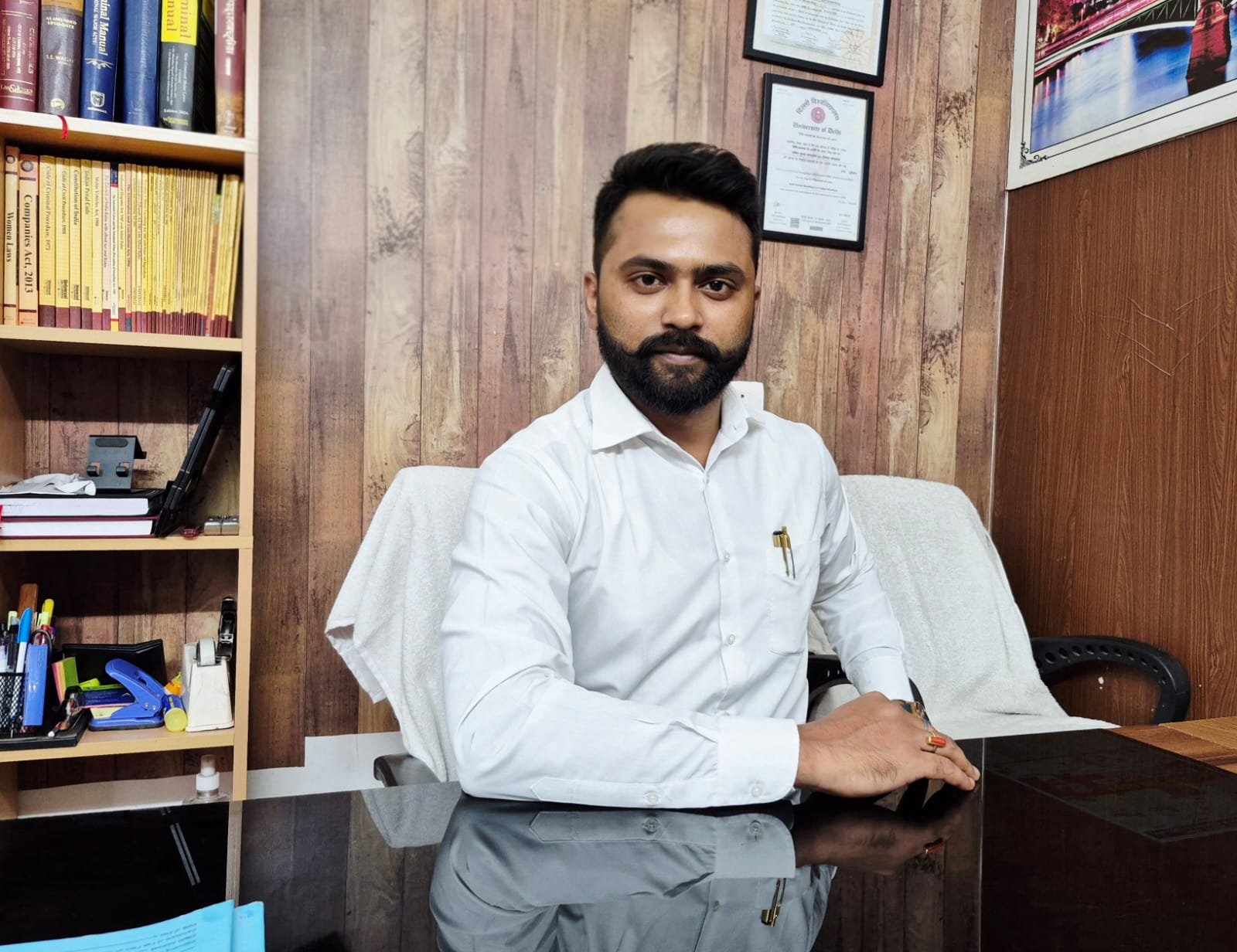Trusted Divorce Lawyer in Delhi – Expert Legal Support for Matrimonial Disputes
Divorce can be one of the most difficult transitions in life — emotionally, financially, and legally. At Niyamam Law Offices, our team of divorce lawyer in Delhi understands this deeply. We provide strategic, confidential, and compassionate legal representation for individuals seeking divorce or separation under Indian law.
Whether you are considering a mutual consent divorce, a contested divorce, or facing issues related to child custody, alimony, or domestic violence, our experienced family lawyers in Delhi are here to protect your rights and guide you through every stage of the legal process.
Our mission is simple — to provide effective legal solutions with integrity, empathy, and precision.

Understanding Divorce Law in India
Divorce in India is governed by personal laws depending on religion:
- Hindu Marriage Act, 1955 (for Hindus, Buddhists, Jains, Sikhs
- Special Marriage Act, 1954 (for inter-faith marriages)
- Indian Divorce Act, 1869 (for Christians)
Dissolution of Muslim Marriages Act, 1939 (for Muslims)
An best divorce lawyers in Delhi ensures that the correct law is applied in your case for maximum benefit.
Types of Divorces We Handle in Delhi
Before choosing the right legal path, it’s important to understand the types of divorce available under Indian law:
1. Mutual Consent Divorce
A mutual divorce is the most amicable way for couples to end their marriage. Under Section 13B of the Hindu Marriage Act, 1955, both spouses can mutually agree to dissolve the marriage if they have been living separately for at least one year and there is mutual consent to end the relationship.
Our mutual divorce lawyers in Delhi assist with:
Drafting joint petitions
Filing in the appropriate Family Court (Saket, Dwarka, Rohini, Karkardooma, etc.)
Appearing for both motions
Seeking waiver of the 6-month cooling-off period where possible
We ensure that the process is smooth, fast, and stress-free, often completed within 6–12 months depending on court timelines.
2. Contested Divorce
A contested divorce occurs when one spouse files for divorce without the other’s consent or when disputes exist over issues like cruelty, desertion, adultery, or mental illness.
Grounds for contested divorce under Section 13(1) of the Hindu Marriage Act, 1955 include:
Cruelty (physical or mental)
Adultery
Desertion for at least 2 years
Conversion to another religion
Mental disorder or incurable disease
Renunciation of the world or presumed death
Our contested divorce lawyers in Delhi represent clients through:
Evidence preparation
Witness examination
Mediation and negotiation
Full courtroom litigation
We focus on protecting your rights while minimizing emotional strain.
3. NRI Divorce & Cross-Border Marriages
In today’s globalized world, many couples are separated by borders. Our NRI divorce lawyers in Delhi handle cases involving:
Jurisdiction issues between India and foreign courts
Recognition of foreign divorce decrees in India
Representation for overseas clients through power of attorney
We ensure compliance with both Indian and international family law principles for hassle-free resolution.
Role of a Divorce Lawyer in Delhi
Hiring the best divorce lawyer in Delhi ensures you don’t get lost in complicated legal procedures. A lawyer assists in:
Filing and drafting divorce petitions
Negotiating alimony and maintenance
Fighting for child custody and visitation rights
Settling property division and inheritance rights
Representing clients in family courts, mediation, and high courts
Protecting you from false allegations
With years of courtroom experience, divorce lawyers in Delhi bring both legal expertise and emotional support.
Divorce Procedure in Delhi
Step 1: Consultation with a Divorce Lawyer
The first step is to consult a divorce lawyer in Delhi who can evaluate your case, explain your rights, and suggest the right legal path.
Step 2: Drafting and Filing the Petition
For mutual divorce, a joint petition is filed.
For contested divorce, one spouse files the petition citing grounds.
Step 3: Court Notice to the Other Spouse
The respondent is served with a notice to appear.
Step 4: Mediation Stage
The court refers both parties for reconciliation or mediation.
Step 5: Court Hearings & Evidence
If mediation fails, the case proceeds with witness examination and legal arguments.
Step 6: Final Decree of Divorce
The court passes a judgment granting or rejecting divorce based on the merits.
For mutual consent divorce, the process is faster — typically involving two motions with a six-month waiting period (which can sometimes be waived).
Trustindex verifies that the original source of the review is Google. Adv ankit helped me for my ongoing divorce case. He knows how to handle these kind emotional turmoil of their clients. He is one of the best divorce lawyer in Delhi so far. I highly recommend him for divorce cases.Posted onTrustindex verifies that the original source of the review is Google. The divorce lawyer in Delhi at Niyamam Law Offices made a very tough time easier for me. Advocate Ankit Kumar was empathetic and patient, and the firm handled everything smoothly. I am very grateful for their support during my case.Posted onTrustindex verifies that the original source of the review is Google. I had a cheque bounce case and was very stressed, but Advocate Ankit Kumar and his team at Niyamam Law Offices handled it with great expertise. He is truly the best cheque bounce lawyer in Delhi. The firm is professional, approachable, and always ready to explain things in simple terms. My issue was resolved much faster than I expected.Posted onTrustindex verifies that the original source of the review is Google. Thanks to Ankit Kumar sir. We won the case in very short time period by his excellent knowledge and experience. Advocate Ankit Kumar is the best divorce lawyer in delhiPosted onTrustindex verifies that the original source of the review is Google. One of my friend recommended Advocate Ankit to hire him as my divorce lawyer and I am truly grateful for that decision. Divorce is never easy, but Advocate Ankit made the entire process far less stressful. He patiently understood my situation, explained my legal options clearly, and guided me through every step of the proceedings. What sets him apart is his blend of professionalism and empathy. He was always approachable, answered my queries without delay, and gave me complete confidence in his strategy. My case involved complex issues of property division and alimony, yet he handled it with precision and secured a fair outcome for me. I would strongly recommend Advocate Ankit to anyone in need of a reliable, compassionate, and highly skilled divorce lawyer in Delhi. His expertise and commitment make him one of the finest family lawyers I have ever met.Posted onTrustindex verifies that the original source of the review is Google. I consulted Advocate Ankit from Niyamam Law Offices during a very difficult phase of my life, and I can confidently say he is one of the best divorce lawyers in Delhi. From the very first meeting, he patiently listened to my concerns, explained the legal process in detail, and gave me the confidence to move forward. My case involved not only divorce but also child custody and maintenance, and he handled everything with professionalism and compassion. What impressed me most was his transparent approach—he kept me informed at every stage, never gave false promises, and ensured that my interests were always protected. His expertise in family and matrimonial law, combined with his courtroom skills, helped me achieve a fair and timely resolution. If anyone is looking for a trusted divorce lawyer in Delhi, I would strongly recommend him. Thank you Advocate Ankit for my case.Posted onTrustindex verifies that the original source of the review is Google. Niyamam law handled my legal issue with professionalism and care. Highly Recommend!Posted onTrustindex verifies that the original source of the review is Google. "If you are looking for a property lawyer in Delhi,Niyamam Law offices is the best choice. Advocate Ankit Kumar handled my property dispute with the legal process clearly and ensured my rights were fully protected.I felt very secure with his advicePosted onTrustindex verifies that the original source of the review is Google. I searched online for the top lawyer in Delhi and found Advocate Ankit Kumar of Niyamam Law Offices. From the first meeting itself, I felt confident about my case. He has deep knowledge of law and represents clients with full commitment. The entire firm works very professionally

Mutual Divorce vs Contested Divorce – Which is Better?
| Factor | Mutual Divorce | Contested Divorce |
|---|---|---|
| Time | 6 months – 1 year | 2–5 years or more |
| Cost | Lower legal expenses | Higher due to prolonged hearings |
| Stress | Less stressful | Emotionally & financially draining |
| Control | Both parties agree | Court decides the outcome |
Cost of Divorce Lawyer in Delhi
The divorce lawyer fees in Delhi depend on:
Type of divorce (mutual or contested)
Complexity of issues (custody, property, alimony)
Lawyer’s experience and reputation
Court involved (Family Court, High Court, Supreme Court)
Why Choose Us?
Experienced Divorce Lawyers
Decades of combined legal expertise.
Personalized Legal Strategies
Tailored to your unique situation.
Aggressive Advocacy
Fighting for your rights in & out of court.
Compassionate Approach
We understand the emotional challenges.
Divorce and Child Custody in Delhi
One of the most sensitive issues in divorce cases is child custody. Courts always consider the best interest of the child.
Mother’s Custody: Generally preferred for children below 5 years.
Father’s Custody: Considered for older children, especially if financially stable.
Joint Custody: Increasingly recognized in Delhi courts.
A divorce lawyer helps you secure custody, visitation rights, and ensures the child’s welfare is protected.
Alimony and Maintenance in Delhi Divorce Cases
Financial security after divorce is a major concern. Alimony (spousal support) and maintenance depend on:
Income and assets of both spouses
Standard of living during marriage
Age and health of the dependent spouse
Custody of children
A skilled divorce lawyer in Delhi help clients seek or defend against claims under:
Section 24 & 25 of the Hindu Marriage Act (Interim and Permanent Maintenance)
Section 125 CrPC
Protection of Women from Domestic Violence Act, 2005
We ensure that settlements are fair, enforceable, and based on accurate disclosure of income and assets.
Property Division in Divorce
Property disputes often complicate divorce cases. In Delhi, division depends on:
Jointly owned property
Stridhan (wife’s personal property and jewelry)
Ancestral property rights
A divorce lawyer safeguards your property interests and negotiates settlements effectively.
Domestic Violence & Protection Orders
If you are a victim of domestic abuse, our team can help you seek:
Protection orders
Residence orders
Maintenance under the Domestic Violence Act, 2005
We also provide defense representation in false DV or 498A cases.
Annulment & Judicial Separation
Not all marriages end in divorce. Some are void or voidable, and others require legal separation. We help clients file for:
Annulment of marriage (due to fraud, impotence, or underage marriage)
Judicial separation (temporary suspension of marital rights)
Our lawyers provide complete guidance on which remedy best suits your situation
Frequently Asked Questions
Around 6–12 months, depending on court workload and cooperation of both parties.
Yes. If your spouse does not agree, you can file a contested divorce citing valid grounds under Indian law such as cruelty, desertion, or adultery.
Courts prioritize the child’s welfare—mothers often get custody, but fathers can also claim rights.
Yes, NRIs can file if marriage was solemnized in India or under Indian law.
Yes, if her income is insufficient compared to her husband’s standard of living.
